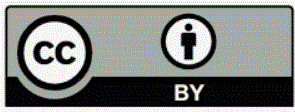
Journal of Salutogenic Architecture
The Journal of Salutogenic Architecture is dedicated to upholding strict ethical guidelines and thorough peer review in order to maintain high standards. The editors should treat any violations of professional ethics with zero tolerance, including plagiarism, fraudulent data use, and false authorship claims.
Statement on publication ethics and malpractice
One of the jobs of the journal is to improve the quality of the journal, so we want to underline the significance of keeping high ethical standards while publishing articles in the Journal of Salutogenic Architecture. The Journal of Saluogenic Architecture complies with international publication ethics and malpractice statements. The Journal of Salutogenic Architecture is committed to upholding the highest standards of publication ethics and pays regard to the principles of transparency and best practices in scholarly publishing developed by the Committee on Publication Ethics (COPE).
Ethical and professional considerations
Articles with political profiles, as well as papers with biased or incorrect assessments of other scientific works and other specialists, are not permitted for publication. Articles are prioritized in the journal based on their scientific novelty and practical importance to the study of salutogenic and well-being architecture. The journal also places an emphasis on research and evidence-based practice.
Misleading Publication
The articles must be genuine and not contain modified data or false information. This is also true for direct translation between languages.
Articles should be as accurate as possible in describing results and should avoid using statements of opinion as facts. The findings should be presented in a clear manner in order to prevent misleading the reader or causing confusion. It is necessary to emphasize the relevance of the results, yet it is also necessary not to overinterpret the findings. An excessive or biased explanation will not progress science and will mislead readers.
Malpractice Statement
The Journal of Salutogenic Architecture will not accept any sort of academic dishonesty. In cases of suspected misbehavior (plagiarism, fraud, infringement of intellectual property rights, etc.), a panel will be constituted to assess the claim's basis. If the claim is proven, the manuscript will be rejected for publication in the Journal of Salutogenic Architecture, and all authors and their affiliations will be notified. If the manuscript was previously published before the misconduct was identified, the authors or the Journal of Salutogenic Architecture will have to retract it, and the case will be made public. Cases of obvious misbehavior may result in a three-year or longer prohibition from submitting to the Journal of Salutogenic Architecture in the future. All appeals to the panel's decisions must be made through the Editor-in-Chief and must be made within 30 days of the decision date.
Journal Publication Ethics Guidelines
The scientific method will be supported by embodied and peer-reviewed articles. As a result, it is necessary to agree on ethical norms for all parties engaged in the publication process: the author, the journal editor, the peer reviewer, the publisher, and the society.
The publisher of the Journal of Salutogenic Architecture takes its responsibilities as a protector of all stages of publishing highly seriously and recognizes ethical and other obligations.
The Journal of Salutogenic Architecture is dedicated to ensuring that advertisements, reprints, or other commercial income has no effect on editorial choices. Furthermore, the Journal of Salutogenic Architecture and its Editorial Board will aid in negotiations with other journals and/or publishers as needed.

Journal of Salutogenic Architecture
This journal is published through an Open Journal System as part of the Public Knowledge Project (PKP).
This journal is licensed under a Creative Commons Attribution 4.0 International (CC BY) license.
